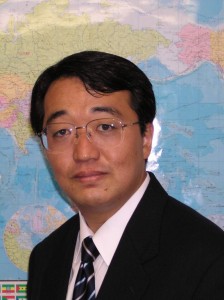緊張と統合:内村鑑三におけるキリスト教と日本の精神
このシリーズでは、私が1994年に執筆した統一神学大学院(Unification Theological Seminary)の神学課程修士論文(Divinity Thesis)を日英二か国語で掲載している。
3.無教会運動における司牧の概念の続き
無教会信者は一般的に、給料をもらっている牧師は、神の恩寵、聖典礼、祝福のセールスマンであり、神の教会を「会社」として経営するが故に、軽蔑すべき人間であると思っている。従って無教会は牧師職養成の為の神学校における準備は、真の福音伝播の使命には全く不適切であると考えている。
無教会信者達は信仰を生きた証しと同一視しているので、神学は信仰を教義という理論へ無意味に組織化するものであるとして退けることは明かである。それは神を人が慈悲と恩寵を求める事ができる人格的存在とではなく、むしろ抽象的な概念としてとらえるからである。彼らは神学を、個人的な確信や実際の献身の伴わない機械的な信仰に導くものであると見るのである。
C.無教会の典礼観
キリスト教の典礼に対する見解において、我々はカトリックの客観主義とプトテスタントの主観主義の間の戦いを見る。実はこの戦いは、宗教改革の時に論争が噴出する以前から西洋思想の底流を流れていた。ドナティストと神秘主義的運動は、宗教改革者達の先駆者であった。
典礼の客観的な効力を指摘するために、カトリック神学は ex opere operato という公式を作り出した。それは典礼は完結された典礼儀式の力によって機能するのであって、それを受ける人や司祭の主観的な性質とは独立して有効であるという意味である。一方プロテスタント神学は、その『信仰のみによる義認』の教義により、典礼は心理学的・象徴的な重要性を持つのみであると主張する。カトリック教会はこの考えを、トレント公会議において異端として排斥した。これに反して改革者達は、カトリックの公式を機械的あるいは魔術的な効力という意味で解釈し、主観的な条件の重要性を軽視しているといって非難した。
III. Concept of Ministry in Mukyokai Movement (Cont.)
The Mukyokai Christians generally feel that salaried ministers are despicable person, salesmen of God’s grace, sacraments, and blessings, administrators of God’s church as a “business.” It follows, then, that the Mukyokai consider seminary preparation for the priesthood as entirely inappropriate for the true evangelical mission.(15)
Since they equate faith directly with a living witness, it follows that the Mukyokai also reject theology as a meaningless theoretical systematization of faith into doctrines which identify God as an abstract idea rather than a personal being to whom man can appeal for mercy and grace. They see theology as leading to a mechanical faith, devoid of any personal conviction or practical commitment.(16)
C. The Mukyokai View of Sacrament
In Christian sacramentalism we see a battle between Catholic objectivism and Protestant subjectivism. Actually this battle had been underlying in Western thought even before the controversy broke out at the time of the Reformation; Donatists and Mystical movements were the forerunner of the Reformers.
In order to designate the objective efficacy of the Sacrament, Catholic theology coined the formula: “The Sacraments works ex opere operato,” that is, the Sacraments operate by the power of the completed sacramental rite, independent of the subjective disposition of the recipient or the minister.(17)On the other hand, Protestant theology insists that the Sacraments have only a psychological and symbolic significance by reason of the doctrine of justification by faith alone.(18)The Catholic Church rejected this idea as a heresy at the Council of Trent. On the contrary, the Reformers interpreted Catholic formula in the sense of a mechanical or magical efficacy,(19)and accused it for minimizing the importance of subjective conditions.(20)
(15)Caldarola, p.75.
(16)Caldarola, p.65.
(17)Ludwig Ott, Fundamentals of Catholic Dogma, ed. James Canon Bastible. (Rockford: Tan Books Publishers, Inc., 1974) pp.328-9.
(18)Ibid., pp.326-7.
(19)Ibid., p.330.
(20)Louis Berkhof. Systematic Theology, (Grand Rapids, Michigan: WM. B. Eerdmans Publishing Co., 1941) p.626.
